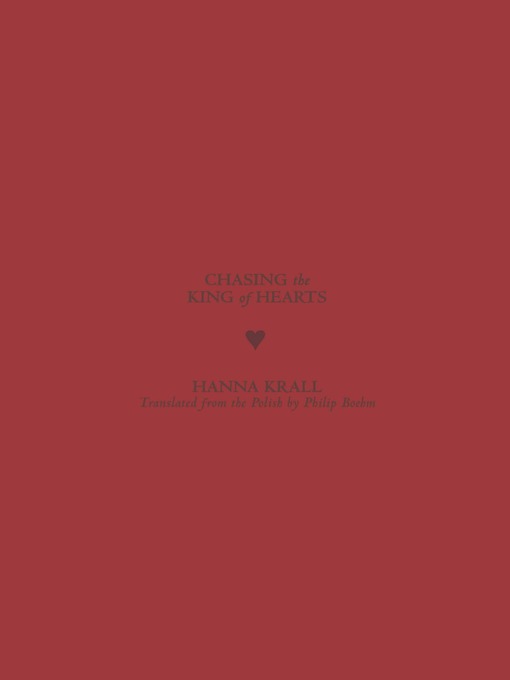
Chasing the King of Hearts
کتاب های مرتبط
- اطلاعات
- نقد و بررسی
- دیدگاه کاربران
نقد و بررسی

Starred review from February 27, 2017
Originally published in Poland in 2006, this devastating, fragmentary Holocaust narrative follows a Jewish woman’s tireless drive to rescue her husband from Auschwitz. Izolda and Shayek fall for each other against the backdrop of Nazi-occupied Warsaw, and are barely married before Shayek is detained and sent to the concentration camp. With nothing more than whispers of his location, Izolda borrows money, delivers illegal letters, and sells black-market bacon to ensure her husband’s safety. She travels from Poland to Germany to Vienna, dying her hair to allay suspicion, until she too is apprehended by the Gestapo and sent to work in a factory in Guben. After absconding and posing as a nurse, Izolda is finally able to track down Shayek, but the experiences of war have changed them both so profoundly that their reunion is coldly, heartbreakingly anticlimactic. The novel is interspersed with flash-forwards, photos of Holocaust victims, and passages of Yiddish, all of which work in concert to recreate the confounding, concurrent horrors of the war and genocide. The prose never once seems out of the author’s control, displaying precisely the serious artistry required to elevate and illuminate such harrowing material.

December 1, 2016
Polish writer Krall transmutes the real experience of a Holocaust survivor into an emotionally bleached yet devastating account of where love can take us.In a shockingly matter-of-fact tone, Krall (The Woman from Hamburg and Other True Stories, 2005, etc.) recounts the horrors of Jewish suffering during World War II in brief chapters and a terse narrative voice: "Shayek leaves to fetch his sisters but comes back without them. They committed suicide, after poisoning little Szymus. Shayek tried to find out where they were buried, but the man who dug their grave is no longer alive either." Without preamble, her short novel plunges the reader into the midst of life in the Warsaw ghetto, where bombs, lice, typhus, and death are everyday events. The book's running refrain when someone disappears is: "That's too bad....We're still here." The narrative belongs to Izolda Regensberg, who meets her husband, Shayek, on Page 1 and spends most of the remaining pages trying to save him, first from Auschwitz and later Mauthausen concentration camps. Initially she escapes from the ghetto and works to save her own family and Shayek's, dyeing her hair blonde, taking on an Aryan identity, and accepting rape by policemen as a form of currency. Her nightmare picaresque journey of arrests, escapes, and desperate negotiations continues after Shayek's arrest. She is sent into forced labor, beaten and tortured by the Gestapo, later dispatched to Auschwitz herself, and yet her indomitable resilience pushes her ever forward--and the occasional chapters set 25 years in the future, in Israel, with Izolda surrounded by grandchildren, confirm she will survive. But it's Krall's unique voice that dominates this detached, surreal, curiously playful tale of a woman of indefatigable resourcefulness trapped between history and her heart. A quirky but exceptional story of infinite love and life-sustaining commitment.
COPYRIGHT(2016) Kirkus Reviews, ALL RIGHTS RESERVED.

























دیدگاه کاربران